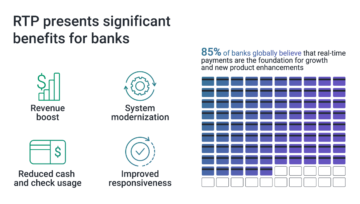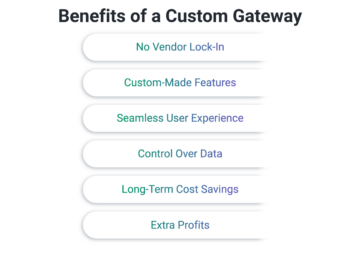
Introducing any new technology into an organisation is generally a tricky process. From a lack of clear objectives to damaging knowledge gaps, there are plenty of things that can go wrong. This is especially true for emerging technologies like AI, where
nearly
half of all adoption projects fail to deliver measurable benefits.
Yet the transformative potential of AI is such that organisations cannot afford to ignore it. The solution, therefore, is to find ways in which to de-risk the integration process while also identifying the departments which would benefit most. And, while
initially finance departments – and particularly accounts payable (AP) – might seem less obvious candidates, they are actually the perfect choice to lead the adoption process.
There are several factors that make AI ideally suited to the type of repetitive tasks handled by finance departments. Workflows that involve the extraction, validation, verification, and integration of existing data points for invoicing are comparatively
easy to automate, but they also negate a number of inherent problems that AI systems can struggle with, like
hallucinations or
biased outputs. This allows for a much smoother adoption process than deploying AI for the generation of new assets – such as marketing copy or internal communications.
Five transformative benefits
The best argument for why finance and AP departments should be first in line to receive AI-assistance is the number of clear and measurable benefits the technology can provide:
- Reduced processing costs: Research has found that, prior to automation, the average AP team spends more than
half of their time (55%) manually keying invoices. This is a huge time commitment and means that employees are unavailable to do higher value strategic activities such as asset optimisation. AI and automation offer huge time and resource savings, reducing
the amount of manual data entry required by 83%. Consequently, the average cost of processing an invoice drops by a
similar percentage, going from around £15 to less than £3. - Enhanced compliance: Not only is manual data entry costly and time-consuming, it is also prone to errors, with
nearly 4% of manually processed invoices containing at least one mistake. Such errors pose significant regulatory and compliance risks for organisations with the potential for financial penalties or legal issues. AI–based automation can help avoid such
issues as it captures invoice header data with 99% accuracy, giving teams far more confidence in their AP data. - Improved vendor relationships: Thirdly, AI enables businesses to process invoices up to 9x faster than doing so manually, which brings both financial and reputational benefits. Not only does faster, more accurate invoice processing significantly
improve relationships with suppliers, but it can also result in fewer late payment fees, and access to early payment discounts. - Searchable storage and retrieval: Alongside manual data entry and processing, data retrieval is another significant time-sink for finance teams, especially in relation to audits and other regulatory checks. Deploying an AI-powered invoice capture
system allows invoices to automatically be stored and indexed in a fully-searchable digital database and enables staff to find the necessary information far more efficiently. - Improved analytics and reporting: Finally, with AI-powered analytics, finance teams can discover and eliminate previously hidden bottlenecks in their AP processes on issues such as payment windows or transaction times. They can also gain contextualised
insight around the operational effectiveness of vendors and relationships with other stakeholders. Such data is essential because it enables more effective decision-making and cost management.
Towards an automated future
More than any technological change since the launch of the internet itself, AI has the potential to completely revolutionise the way businesses operate. But, as the last three decades of digital adoption has demonstrated, the path isn’t always clear or easy.
Rather than attempting to bring in AI across all departments to meet dozens of needs at once, organisations need to be strategic about their adoption plans. Crucially, organisations need to start by investing in AI integration projects with a clear remit
and measurable ROI that can provide a template of what a successful adoption process looks like. Given the importance and structure of finance departments, as well as the enormous benefits in terms of cost reduction, compliance, and superior decision-making,
it is the ideal place for companies to begin their journey towards an AI-powered future.
- SEO Powered Content & PR Distribution. Get Amplified Today.
- PlatoData.Network Vertical Generative Ai. Empower Yourself. Access Here.
- PlatoAiStream. Web3 Intelligence. Knowledge Amplified. Access Here.
- PlatoESG. Carbon, CleanTech, Energy, Environment, Solar, Waste Management. Access Here.
- PlatoHealth. Biotech and Clinical Trials Intelligence. Access Here.
- Source: https://www.finextra.com/blogposting/26312/pay-smarter-not-harder-five-ways-ai-is-transforming-ap?utm_medium=rssfinextra&utm_source=finextrablogs
- :has
- :is
- :not
- :where
- $UP
- a
- About
- access
- Accounts
- accounts payable
- accuracy
- accurate
- across
- activities
- actually
- Adoption
- afford
- AI
- AI Integration
- AI systems
- AI-powered
- All
- allows
- alongside
- also
- always
- amount
- an
- analytics
- and
- Another
- any
- ARE
- argument
- around
- AS
- asset
- Assets
- At
- attempting
- audits
- automate
- Automated
- automatically
- Automation
- average
- avoid
- BE
- because
- begin
- benefit
- benefits
- BEST
- biased
- both
- bottlenecks
- bring
- Brings
- businesses
- but
- by
- CAN
- candidates
- cannot
- capture
- captures
- change
- Checks
- choice
- clear
- commitment
- Communications
- Companies
- comparatively
- completely
- compliance
- confidence
- Consequently
- containing
- copy
- Cost
- Cost Management
- cost reduction
- costly
- Costs
- crucially
- damaging
- data
- data entry
- data points
- Database
- decades
- Decision Making
- deliver
- demonstrated
- departments
- deploying
- digital
- discounts
- discover
- do
- does
- doing
- dozens
- Drops
- Early
- easy
- Effective
- effectiveness
- efficiently
- eliminate
- emerging
- emerging technologies
- employees
- enables
- enormous
- entry
- Errors
- especially
- essential
- existing
- extraction
- factors
- FAIL
- far
- faster
- Fees
- fewer
- finance
- financial
- Find
- Finextra
- First
- five
- For
- found
- from
- future
- Gain
- gaps
- generally
- generation
- given
- Giving
- Go
- going
- Half
- handled
- harder
- help
- Hidden
- higher
- HTTPS
- huge
- ideal
- ideally
- identifying
- ignore
- importance
- improve
- in
- indexed
- information
- inherent
- initially
- insight
- integration
- internal
- Internet
- into
- investing
- invoice
- invoice processing
- invoices
- invoicing
- involve
- issues
- IT
- itself
- journey
- jpg
- knowledge
- Lack
- Last
- Late
- launch
- lead
- least
- Legal
- Legal issues
- less
- like
- Line
- LOOKS
- make
- management
- manual
- manually
- Marketing
- means
- measurable
- Meet
- might
- mistake
- MIT
- more
- most
- much
- nearly
- necessary
- Need
- needs
- New
- nist
- number
- objectives
- obvious
- of
- offer
- on
- once
- ONE
- only
- operate
- operational
- or
- organisation
- Organisations
- Other
- particularly
- path
- Pay
- payment
- penalties
- perfect
- Place
- plans
- plato
- Plato Data Intelligence
- PlatoData
- Plenty
- points
- pose
- potential
- previously
- Prior
- problems
- process
- processed
- processes
- processing
- projects
- provide
- Quadient
- receive
- reducing
- reduction
- regulatory
- relation
- Relationships
- remit
- repetitive
- Reporting
- required
- research
- resource
- result
- retrieval
- revolutionise
- risks
- ROI
- Savings
- seem
- several
- should
- significant
- significantly
- similar
- since
- smarter
- smoother
- So
- solution
- spends
- Staff
- stakeholders
- start
- storage
- stored
- Strategic
- structure
- Struggle
- successful
- such
- suited
- superior
- suppliers
- system
- Systems
- tasks
- team
- teams
- technological
- Technologies
- Technology
- template
- terms
- than
- that
- The
- their
- There.
- therefore
- they
- things
- this
- three
- time
- time-consuming
- times
- to
- towards
- transaction
- transformative
- transforming
- tricky
- true
- type
- unavailable
- validation
- value
- vendor
- vendors
- Verification
- Way..
- ways
- WELL
- What
- which
- while
- why
- windows
- with
- workflows
- would
- Wrong
- zephyrnet












